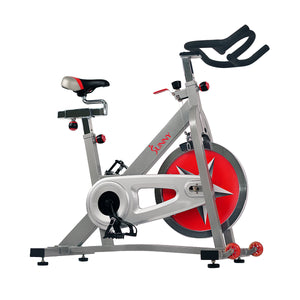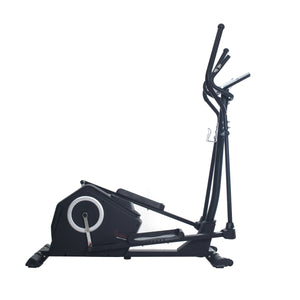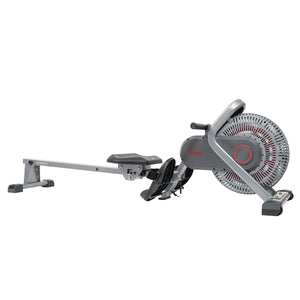Fitness is more than just a physical activity for me; it is a way of life. Workouts clear my mind, give me a sense of liberation, and always help unburden life stressors. Pushing my body past its limits, hitting personal records, and figuring out new movement patterns empowers me. With fitness, I continuously grow in strength and enjoy mastering skills and techniques in my fitness pursuits. I eventually put my training to the test by competing in and winning a variety of events ranging from bodybuilding to CrossFit, weightlifting, triathlons, and jujitsu. I couldn't wait to do more with my body, to learn more about it, and to physically train myself to uncover the limits of my abilities.
But fate is a fickle companion, and one day my fitness pursuits came crashing down around me. A devastating injury led to extensive surgery, rendering my leg immobile. Once an unbeatable athlete, now confined to a wheelchair and crutches, my abilities sapped by the cruel hand of fate.
I had a complete ACL tear, an obliterated meniscus, and bone and muscle damage around my left knee and leg. It was horrible – I couldn’t walk, I couldn’t use the restroom conventionally, I couldn’t stand up to make a plate of food. As months went by like this, I let darkness envelop me. I fell into a depression, I felt useless and lost without my physical prowess. I watched helplessly as my leg wilted, my hard-earned muscles deteriorated, and my abilities crumbled in front of my eyes. Unable to move or use my body, the vibrant spirit that once radiated from me faded, leaving a shadow of my former self behind.
Sustaining an injury can be a frustrating setback for anyone serious about reaching their fitness goals. Physical limitations and recovery can have an impact on both the body and the mind. It's important to remember that staying on track with your fitness goals is still possible even if you're injured.
This blog will discuss some of the mental and physical aspects of staying on track while injured. We will also talk about tips to overcome depression, stay motivated, and hopefully inspire those dealing with injury to get back on the fitness “gain train”.
Staying Mentally Tough
Firstly, as an injured athlete (If you work out, you’re an athlete), it’s important to understand the mental aspect. One of the most difficult aspects of being injured is feeling excluded from your regular workout routine. Watching your workout buddies or favorite social media influencers hitting PRs and doing fun workouts that you cannot participate in makes injury even tougher. It is critical to recognize these emotions and find ways to manage them. For example, try concentrating on other aspects of your health and recovery. The emotional impact of an injury prevents athletes from continuing their physical participation; however, the psychological impact of injury has not been well documented(1). Studies report that athletes must accept the reality of their injury to remain positive and expedite recovery(2).
One way to manage depression when dealing with an injury is to come to terms with the reality of your situation(2). Athletes have expressed that when they actively address the negative physical and psychological impacts of an injury, they proactively employ suitable cognitive coping techniques. Acceptance or disengagement from injury, imagery, positive thoughts, and recovery are among the common cognitive techniques athletes use to cope with injury(2). So, accepting the injury, following the rehabilitation plan, and a gradual return to activity all while staying positive is how we get through a devastating injury, right? Easier said than done!
Those who find great joy in their daily workout routines may experience depression if they are injured. Some other ways to overcome this are to seek support from loved ones and stay connected to the fitness community. Additionally, concentrate on alternative objectives, like new goals in your rehab process. This can also look like incorporating physical therapy exercises into your fitness routine, as they allow you to stay active while also adapting to the needs of your body. You can even do your therapy exercises with your friends at the gym, so you maintain a part of your routine. The plus side of having friends with you is they can help you load weights and navigate gym equipment with your new adaptive body mechanics. In my injury rehab, going to the gym helped me learn how to use conventional machines in fun new ways that benefited my recovery.
Your new rehab journey allows you to slow down, to work on other areas of your body, and provides you an opportunity to refocus and work on previously neglected body parts. In some ways, going through an injury can help you come back smarter and more resilient if you do it correctly. It will be tough, as many of us develop a fear of re-injuring ourselves upon our return to our sport and regular workouts, but patience and acceptance of your injury are key(3).
Fighting Fear of Re-Injury
Because of this fear of re-injury, it is important to reduce the pressures of returning to activity too soon. In many professional athlete scenarios, sports medicine practitioners may be forced to limit the athlete's participation in training and competition if the athlete is putting themselves under pressure to return prematurely(3).
Injuries can serve as a wake-up call to reassess your body and the goals you have for it. Maintaining proper mechanics and movement patterns are the necessary foundations for developing strength. Recovery from injury helps take us back to the foundational moves that allow us to be better-functioning athletes, moving smarter and more efficiently. Learning efficient movement techniques is highly important in avoiding future injuries and improving overall fitness. This also contributes to becoming a smarter mover when returning to your regular training.
Cultivating Self-Compassion and Shifting Your Perspective
Each body is unique, and injuries allow you to better appreciate and understand your body. Appreciate your body, while also considering your injury and limitations. I cannot tell you how important it is to have gratitude for your body and capabilities, especially in times of recovery. Understanding that this injury is temporary and that you will eventually be able to return to your desired workout routine will help you mentally cope with your rehab process. Whenever you feel restricted by your injury, remember that your body will heal if you let it and you will eventually get back to normal functioning. Cultivating techniques of appreciation and self-compassion will do wonders for your recovery process.
This leads me to the big picture: recognizing that some people have greater difficulty or limitations to exercise due to chronic conditions or disabilities. We need to investigate ways to make exercise more accessible and inclusive for all body types. As I awkwardly navigated my way through the gym, I had a hard realization that the gym is not built for people living with a disability. However, through a little bit of struggle, I learned how to modify and perform movements, enough to call it a good workout. This journey made me empathetic towards those who need help navigating through exercise modifications. I hope that if you are dealing with an injury, you try your best to continue moving your body in any way that you can through modifications.
Strategies For Coping
If you are unable to participate in your daily workout routine due to injury, it is common to feel depressed and frustrated. There are, however, several strategies that can assist in maintaining a positive mindset:
1. Seek Help
Reach out to friends, family, or a support group for understanding and encouragement during this difficult time. Talking about your feelings and frustrations can help relieve the isolation that often comes with being injured.
2. Maintain a Connection to the Fitness Community
Even if you are unable to physically participate in your regular workouts, maintaining a connection to the fitness community can help you feel like you belong. Participate in online forums, social media groups, or fitness-related events to share experiences, seek advice, and stay motivated. The SunnyFit® app has a great fitness community and can help you stay connected.
3. Set Alternate Goals
Shift your focus away from your regular fitness goals and toward goals that are compatible with your injury and recovery process. This could include working on flexibility, mobility, or learning proper body mechanics. Setting attainable goals will help you stay motivated and feel like you're making progress.
4. Investigate Low-Impact Activities
Work with a healthcare professional or physical therapist to identify low-impact activities that you can do safely while recovering. Swimming, yoga, and gentle stretching exercises are examples of such activities. These activities can help you maintain your fitness level while reducing your risk of further injury.
5. Practice Mindfulness and Meditation
Mindfulness and meditation practices can help you reduce stress and improve your mental health. Set aside time each day to concentrate on your breath, be present in the moment, and cultivate a positive attitude. This can help relieve depression and anxiety caused by being unable to participate in your regular workout routine.
6. Prioritize Nutrition and Rest
While physical activity may be limited, prioritizing proper nutrition and rest will help your body heal. Eating a well-balanced diet and getting enough sleep can help you feel better and recover faster.
7. Be Open to Cross-Training and Adaptation
Investigate various forms of exercise that are safe for your injury. Cross-training allows you to engage in activities that target different muscle groups while still maintaining overall fitness. Consult a healthcare professional or fitness expert to create a personalized exercise plan that considers your injury.
Remember that healing takes time, and you must be patient with yourself during this time. You can overcome feelings of depression and stay on track with your fitness journey even if you are injured by implementing these strategies and maintaining a positive mindset.
Staying Connected During Recovery
It was very important for me to stay involved and connected with my fitness community and to keep instructing as a coach, even when I was in crutches and wheelchairs. I did not skip a beat. I would teach live classes right after PT and then teach audio run/walk classes for Sunny. Staying on routine and being around my teammates at work and at the gym helped me emotionally and kept me feeling connected. Numerous studies have suggested that psychological and social factors are important in injury rehabilitation(4).
Social support has emerged as a significant buffering and coping resource in the recovery process from athletic injuries among the psychosocial factors studied(4). Staying connected to your fitness community, even if you are unable to physically participate in regular workouts, can provide several advantages when you are unable to engage in your usual fitness routines
1. Emotional Support
Being a member of a fitness community gives you a sense of belonging and camaraderie. It's natural to feel isolated or frustrated when you can't participate in your usual workouts. Connecting with others who have similar interests and experiences can help to alleviate these feelings and provide emotional support during your recovery.
2. Motivation and Inspiration
The fitness community is full of people who are enthusiastic about health and wellness. You can find motivation and inspiration from others who have overcome obstacles or faced similar challenges. Their stories and accomplishments can help you remember that setbacks are only temporary and keep you motivated on your own journey.
3. Knowledge Sharing
Participating in the fitness community gives you access to a wealth of knowledge and expertise. You can learn about injury prevention, recovery strategies, and alternative exercises that can aid in your rehabilitation. Sharing your own experiences and soliciting advice from others can help you gain a better understanding of fitness and well-being.
4. Accountability
It's easy to fall into a pattern of inactivity or lack of motivation when you're recovering from injury. You can hold yourself accountable to your goals and commitments by staying connected to the fitness community.
5. Networking Possibilities
Being a member of the fitness community can lead to networking opportunities. You may come across fitness professionals, such as trainers, physical therapists, or nutritionists, who can offer valuable advice and support during your recovery. Relationships within the fitness community can also lead to future collaborations or partnerships that can help you down the road.
Overall, staying connected to your fitness community provides emotional support, motivation, knowledge sharing, accountability, and networking opportunities. These advantages can contribute to your overall well-being and assist you in navigating the difficulties of being injured.
Recognizing Your Power
My own experiences taught me that true strength can be found in the power of the mind and the depths of the heart. It is unwavering faith in oneself, the courage to face challenges head-on, and the willingness to seek assistance when necessary. I realized that strength is a collective effort involving the support and love of those around us, rather than a singular achievement.
My journey taught me that true strength is more than just physical prowess. It is about finding inner peace, loving oneself, and cultivating a positive attitude. I realized that even without my athletic ability, I could still inspire and uplift others with my words, empathy, and unwavering determination.
Maintaining fitness goals while injured necessitates a combination of mental fortitude and physical adaptability. It has been reported that once mental toughness is developed, three underlying mechanisms are needed to sustain it: an insatiable and internalized desire and motivation to succeed, a support network, and effective use of psychological skills(5). You can navigate the challenges of staying in shape while injured by learning proper movement techniques and cultivating gratitude. Remember that it's not just about physical fitness. Maintaining a positive mindset and appreciating your body's abilities throughout the healing process is just as important as your physical capabilities.
I realized that true strength is the ability to find meaning in life regardless of the circumstances. It is about accepting the journey of self-discovery, reinvention, and personal development. You can still be a superhero regardless of your physical abilities. Find purpose in your ability to inspire, empower, and positively impact the lives of others.
This recovery journey taught me that true strength is a testament to the human spirit's resilience and the limitless potential that each of us possesses. It serves as a reminder that even in our darkest moments, we can rise, transform, and become our best selves. So, if you ever suffer an injury, remember my story, and know that you, too, will triumph.
1. Leddy, M. H., Lambert, M. J., & Ogles, B. M. (1994). Psychological Consequences of Athletic Injury among High-Level Competitors. Research Quarterly for Exercise and Sport, 65(4), 347–354. https://doi.org/10.1080/02701367.1994.10607639. Accessed 4 January 2024.
2. Brewer, B. W. (2017). Psychological Responses to Sport Injury. Oxford Research Encyclopedia of Psychology. https://doi.org/10.1093/acrefore/9780190236557.013.172. Accessed 4 January 2024.
3. Podlog, L., Dimmock, J., & Miller, J. (2011). A review of return to sport concerns following injury rehabilitation: Practitioner strategies for enhancing recovery outcomes. Physical Therapy in Sport, 12(1), 36–42. https://doi.org/10.1016/j.ptsp.2010.07.005. Accessed 4 January 2024.
4. Hélder Miguel Fernandes, Manuel, V., José Vilaça-Alves, Saavedra, F., Felipe José Aidar, & Brustad, R. J. (2014). Social support and sport injury recovery: An overview of empirical findings and practical implications. Revista de Psicología Del Deporte, 23(2), 445–449. Accessed 4 January 2024.
5. Connaughton, D., Wadey, R., Hanton, S., & Jones, G. (2008). The development and maintenance of mental toughness: Perceptions of elite performers. Journal of Sports Sciences, 26(1), 83–95. https://doi.org/10.1080/02640410701310958. Accessed 4 January 2024.

























Add Your Name & Email
Please enter your name and email to continue.We won’t display your email publicly.
1 comment
I wish I would have found this article sooner.
I broke my foot in December. Rebroke it at the end of February just as I was about to start PT.
It’s been devastating for me being an athlete. Going to be another 6 months of recovery, but I am very hopeful now that I seem to be on the mend. This article helped a lot. The mental aspect really takes a toll. Stay strong ya’ll!